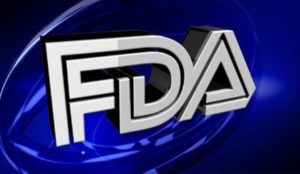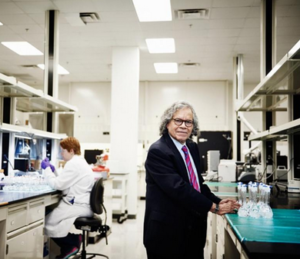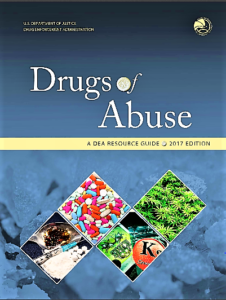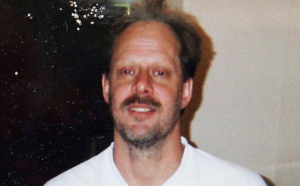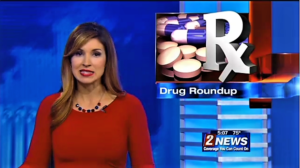- Cities, counties and schools sidestep FDA foreign drug crackdown, saving millions (washingtonpost.com)
Schenectady County, N.Y., is on track to pay 20 percent less on prescription drugs for its employees this year than in 2003...Flagler County, Fla., expects to save nearly $200,000 in 2017 on brand-name medicines for its 800 workers, thanks to drug costs that have fallen 10 percent since 2016...dozens of cities, counties and school districts have found a solution they say protects their budgets and saves workers money: They are helping employees buy medicines from Canada and overseas, where prices are up to 80 percent cheaper...“We love it. . . . It’s a win-win,” said Anita Stoker, benefits and wellness manager for Flagler County, which has a program enabling its employees to get drugs from pharmacies in Canada, Britain, Australia and New Zealand...The number of municipalities offering this benefit is growing, even though the Food and Drug Administration considers such drug importation to be illegal and this fall began stepping up enforcement against storefronts advertising the same service. In October it raided nine central Florida locations that helped a mostly senior population order drugs from pharmacies in other countries. Investigators warned the stores’ owners that they were operating illegally and could face fines or jail time...Drugs ordered from overseas often come with the same packaging as in the United States. CanaRx, based in Windsor, Ontario, and ElectRx, based in Detroit, say they vet pharmacies to ensure customers get the real product. Counties, cities and schools, plus an increasing number of private companies, contract with one of these businesses for online service.
- Fentanyl Billionaire John Kapoor To Plead Not Guilty In Opioid Kickback Case (forbes.com)
Fentanyl billionaire John Kapoor is set to plead not guilty this morning on charges of racketeering, mail fraud, wire fraud and conspiracy to violate the anti-kickback law...The founder and former CEO and chairman of ...Insys Therapeutics, Kapoor became a billionaire in 2013 because of the skyrocketing sales of that company’s Subsys, a form of the powerful opioid fentanyl that is sprayed under the tongue. He was arrested and charged on October 26 for allegedly leading a conspiracy to use fraud and bribes to market the drug and is set to appear in federal court in Boston...for his arraignment...Prosecutors...allege that Kapoor and six other executives...were arrested and charged...as part of a superseding indictment, offered bribes and kickbacks to doctors and nurses to get them to write large numbers of Subsys subscriptions to patients, most of whom did not have cancer.
- 2017 edition of Drugs of Abuse, A DEA Resource Guide (dea.gov)
- Las Vegas Strip shooter prescribed anti-anxiety drug in June (reviewjournal.com)Drug given to Paddock calms some, provokes others, experts say (reviewjournal.com)
Stephen Paddock, who killed at least 58 people and wounded hundreds more in Las Vegas...with high-powered rifles, was prescribed an anti-anxiety drug in June that can lead to aggressive behavior...Records from the Nevada Prescription Monitoring Program...show Paddock was prescribed 50 10-milligram diazepam tablets by Henderson physician Dr. Steven Winkler on June 21...Diazepam...studies have shown can trigger aggressive behavior. Chronic use or abuse of sedatives...can also trigger psychotic experiences...“If somebody has an underlying aggression problem and you sedate them with that drug, they can become aggressive,” said Dr. Mel Pohl, chief medical officer of the Las Vegas Recovery Center. “It can disinhibit an underlying emotional state. … It is much like what happens when you give alcohol to some people … they become aggressive instead of going to sleep.”
- Dark web drug market growing rapidly in Europe: report (reuters.com)Drugs and the darknet: perspectives for enforcement, research and policy (emcdda.europa.eu)
The illegal drug trade on the dark web is growing rapidly, despite authorities shutting down major market sites like AlphaBay, as crime gangs diversify and seek new clients online, a report by two European Union agencies warned...The report, which is the first of its kind to analyze the drug trade in Europe on the dark web, showed that online markets are becoming increasingly sophisticated and offering growing numbers of illegal products to buyers...Users are largely anonymous and untraceable and mainly pay with cryptocurrencies like bitcoin...Two thirds of dark web transactions involve drugs, the report by Europol and EMCDDA (The European Monitoring Centre for Drugs and Drug Addiction) found. The biggest European markets are Germany, Britain and the Netherlands. From 2011-2015, drugs worth more than 170 million euros were sold over the dark web worldwide, including nearly 80 million euros worth in Europe...the dark web is an increasingly attractive market because buyers and sellers are anonymous and there is a perception that drugs bought there are good quality...
- DEA cracking down on fake fentanyl traffickers (statnews.com)
The U.S. Drug Enforcement Administration wants to make it easier for federal prosecutors to go after people who peddle illicit versions of the deadly opioid fentanyl that are fueling the nation’s drug abuse crisis...The agency said Thursday it intends to classify drugs that are chemically similar to fentanyl as illegal controlled substances, letting prosecutors avoid the hurdles they often face in bringing charges in such cases...The move aims to stop the flow of fentanyl variants into the U.S. as the opioid abuse crisis rages...The new classification, which would last two years, lets prosecutors bring charges against fake-fentanyl traffickers under the federal Controlled Substances Act. Prosecutors have been able to use the Analogue Act for cases involving variants, but that requires them to call chemists and other experts to prove that, while molecularly different, the drugs are just as potent and dangerous as fentanyl in its true form. Prosecutors often complain of being stymied by the additional hurdles that delay cases and sometimes lead to charges being dropped...Law enforcement officials are frustrated by chemists who frequently alter the chemical compounds in their drugs to create substances that are not expressly illegal. Justice Department and DEA officials say they play a constant game of “whack-a-mole” to keep up with the changes.
- Join Together Northern Nevada To Hold Prescription Drug Round Up (ktvn.com)Take Back Day (takebackday.dea.gov)
Join Together Northern Nevada is holding a semiannual “Prescription Drug Round Up” day on October 21 from 10 a.m. to 2 p.m. The goal of the round up is to collect unused, unwanted and expired prescription - or non-prescription - medications.
Locations:
- Raleys - 18144 Wedge Parkway, Reno
- CVS – 55 Damonte Ranch Parkway, Reno
- SaveMart – 105—N. McCarran Blvd., Reno
- Smith’s – 175 Lemmon Drive, Reno
- Scolari’s – 4788 Caughlin Parkway, Reno
- UNR Student Health Center, 1664 N. Virginia Street, Reno
- CVS - 680 N. McCarran Blvd, Sparks
- CVS – 5151 Sparks Blvd., Sparks
You may also drop off your pet medications and liquid form of medications.
- Pfizer in fight with states over their intent to use its drugs for executions (fiercepharma.com)
Pfizer is in a tug of war with several states that intend to use some of its drugs to carry out executions...The drugmaker sent letters last month to both Nevada and Nebraska asking for the return of drugs, which include the sedative diazepam and the opioid painkiller fentanyl, if the states intended to use them for executions...The company said it would reimburse the states...Nevada has already indicated it does not intend to return the drugs, which the state obtained from wholesaler Cardinal Health...“We have communicated to the Departments of Correction in the 31 states permitting use of lethal injection for capital punishment that Pfizer strongly objects to the use of its products as lethal injections for capital punishment. We have asked all such states to return any Hospira or Pfizer manufactured Restricted Product in their possession and provided them with procedures to follow in return for a full refund.”...Nevada, in its first execution in 11 years, wants to use an execution cocktail containing the never-before-tried combination of diazepam, fentanyl and the muscle paralytic cisatracurium...Last week's scheduled execution was delayed while the state supreme court reviews the matter after a state judge rejected the prison system's intent to use cisatracurium in the lethal cocktail. The state attorney general is appealing that decision.
- Is FDA Going Too Far in Enforcing Drug Compounding Law? (c.ymcdn.com)
...the FDA is overstepping its authority and jeopardizing patient access to compounded medications...The pharmacies say the Food and Drug Administration has misinterpreted Congress’s intent when it enacted the Drug Quality and Security Act (DQSA)...by not allowing office-use compounding...The pharmacies also are concerned that the FDA has issued no rules for compounding but only guidance documents, which aren’t legally enforceable...‘Mass confusion has resulted from the usage of guidance documents, and the FDA is definitely circumventing the Administrative Procedure Act (APA) in our opinion,’’ Cynthia Blankenship, executive vice president of the International Academy of Compounding Pharmacists (IACP)...The APA governs how federal agencies propose and establish regulations. IACP wants Congress to pass a bill (H.R. 2871) they say will fix these issues...Since the DQSA was enacted, the FDA has significantly..increased its inspections of drug compounding...facilities...The FDA has conducted more than 350 inspections of compounding pharmacies as of Nov. 27, 2016, and nearly 120 of those inspections were due to reports of serious adverse events or product quality issues...
- Why a Pharmacy School Cancelled Marijuana Classes (drugtopics.modernmedicine.com)
Medical cannabis classes will no longer be held at the University of Maryland-Baltimore...The...School of Pharmacy has cancelled plans to start offering medical cannabis classes this fall...The online classes covered cultivation, manufacturing, dispensing, and laboratory standards of medical cannabis. However, after consulting with the Maryland attorney general’s office, the University directed the School of Pharmacy to not offer the classes...“The decision is due to legal concerns about United States law, and does not reflect any school concerns about the substantive content of the course materials,” Alex Likowski, Director of Media Relations, Communications, and Public Affairs, told Drug Topics..., the federal Controlled Substances Act remains in effect...“Under the CSA, cannabis is treated the same as any other controlled substance without regard to any medicinal use.

